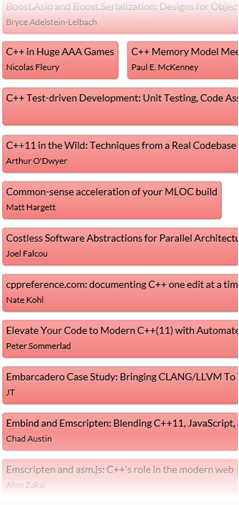N4076: A proposal to add a generalized callable negator (Revision 4) -- Tomasz Kaminski
This paper was approved at the June ISO C++ meeting for the Library Fundamentals TS.
A new WG21 paper is available. A copy is linked below, and the paper will also appear in the next normal WG21 mailing. If you are not a committee member, please use the comments section below or the std-proposals forum for public discussion.
Document number: N4076
Date: 2014-06-17
A proposal to add a generalized callable negator (Revision 4)
by Tomasz Kaminski
Excerpt:
This proposal is to add function template
not_fnthat will allow to create negator of any callable object.

 This is the day we've been waiting for: The
This is the day we've been waiting for: The